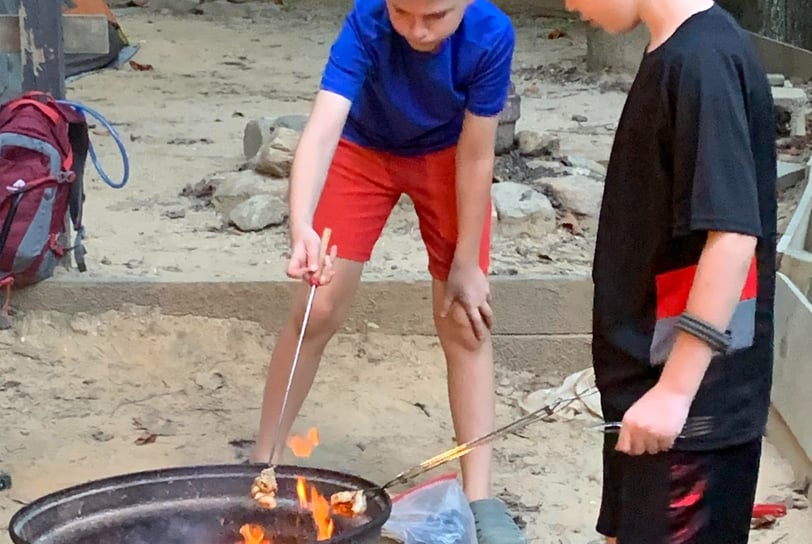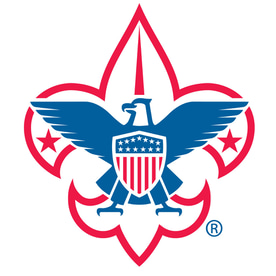Camping Tips
Every camping trip is different. But one thing is the same, no matter where you're going: be prepared. It's the Scout motto!
1/21/20252 min read


Believe it or not, the best thing you can do to prepare for camping is to read a book. Your Scout handbook provides a thorough introduction to camping skills and includes packing lists. Any outdoor adventure, whether a weekend camping trip or a day hike, should start with the 10 Essentials:
Pocket knife
Extra clothing
Rain gear
Water + water storage/management equipment
Sun protection
Map and compass
First aid kit
Trail food
Matches/firestarter
Flashlight or headlamp
Beyond the 10 essentials, successful camping depends on being able to stay warm (or cool) and dry, to sleep (reasonably) comfortably, to eat well, and to have fun! Here are some tips that we have learned over dozens of camping adventures:
Know how to set up your tent or hammock and rain fly, and check your equipment before departure to make sure you have all the poles, pegs, and other parts required to set them up. There's nothing worse than getting three-quarters of the way through setting up your tent only to realize that the rain is coming in and your tent fly is back in Sherrills Ford.
Understand how to keep your gear dry. As far as we remember, our troop has had just one camping trip without rain. Some tents tend to draw water from the bottom; most hammocks wick rain down the straps. Be prepared with tarps, an extra-large fly, or whatever else you need to keep your things dry. It's also important to have good hiking boots so that your feet don't get waterlogged. If you opt for sneakers, be sure to bring an extra pair.
If your clothing, sleeping bag, or other gear does get wet, do NOT cram it back in your bag or trunk while it's still wet. Not only will it get your other stuff wet, it will make everything reek after a couple of days.
Wet feet can also mean blisters. Pack plenty of socks. If you do get blisters, be sure to have moleskin as part of your first aid kit.
In cold-weather camping, plan at least a couple of strategies for extra warmth. Consider bringing Hot Hands or similar products; some even have adhesive that will stick inside your sleeping bag to keep your feet warm. Or, bring a watertight Nalgene bottle and fill it with boiling water before going to sleep. Slide it into a sock and put it into your sleeping bag. You can even get battery-powered heated sleeping pads to put inside your tent.
Learn your knots! Not only will knowing knots help you to set up a dining fly and a clothesline, they can also save your life.
Likewise, take your first aid training seriously. You never know when you'll need it. Don't be afraid to ask questions if you don't understand when, why, or how to do something.
That last part--not being afraid to ask questions--is the real key to becoming a great camper. No matter how many times you go camping, you will always run into someone with more experience and knowledge to share. Like other skills you learn in Scouting, camping skills can be used throughout your life.
